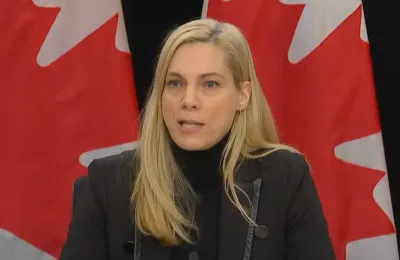‘I spent my entire life wanting to be a mom. I loved, nurtured and grew my child, and I would have done literally anything in my power to keep him,’ Krystena Murray said of the baby boy of African descent she gave birth to.
Pray for an end to IVF and the protection of human embryos: Join our prayer pledge
(LifeSiteNews) -- A woman in Georgia is suing an in vitro fertilization (IVF) facility after she gave birth to a baby who was clearly not biologically hers and was later forced to give the child to his original parents.
Krystena Murray, a 38 year-old wedding photographer, filed a lawsuit on Tuesday explaining how, upon giving birth, she realized her baby was not conceived using her own embryo, since she and her sperm donor are white, and the baby she gave birth to is of African descent.
“I hoped that it was just a sperm mix-up, not an embryo mix-up,” Murray told NBC News. A DNA test confirmed, however, that the baby was not biologically hers.
“Five months after giving birth, Ms. Murray had bonded with her baby and desperately wanted to keep the child. But after Coastal Fertility found out that Defendants had transferred to Ms. Murray an embryo belonging to another couple ('Stranger Couple') – and then alerted the Stranger Couple – the Stranger Couple sued Ms. Murray in family court for custody of the Baby,” the lawsuit recounted.
“The happiest day of their life is the worst day of mine,” Murray told NBC.
“I walked in a mom with a child and a baby who loved me and was mine and was attached to me, and I walked out of the building with an empty stroller, and they left with my son,” Murray told NBC News, regarding the day she had to hand over the child in court.
“I grew him, I raised him, I loved him. I saw him no different than if he were mine, my own genetic embryo,” she added.
This “Stranger Couple” now has full custody of the child and lives in a different state from Murray. Meanwhile, Murray does not know if she has a biological child being raised by another couple.
After these events, which the lawsuit describes as traumatic for Murray, the would-be mother has accused Coastal Fertility employees of eight counts of misconduct, including gross negligence and fraudulent concealment.
“The actions of the fertility clinic have come very close to destroying me, have left irreparable damage to my soul, and ultimately left me questioning whether I should be a mom,” said Murray at a press conference.
Coastal Fertility Specialists said in a statement that it “deeply regrets the distress caused by an unprecedented error that resulted in an embryo transfer mix-up.”
The IVF company added that it is an “isolated incident” and that it has reportedly implemented safeguards to ensure such a mix-up does not happen again.
In fact, such IVF mix-ups have been increasingly garnering high-profile attention. In 2021, two California couples raised children conceived from IVF who were not biologically their own for months, until they discovered the mix-up and eventually swapped children. One couple immediately realized something was wrong when they gave birth to a daughter with jet black hair, and not light-colored like themselves.
In 2019, a New York couple sued after the wife gave birth to twins conceived through IVF who were not of Asian descent, like the couple.
That these IVF mix-ups were highlighted by obvious racial and physical disparities raises the question of how often mix-ups are occurring but go unnoticed due to less obvious physical trait differences in IVF babies.
Murray described the baby boy she gave birth to “the most beautiful human” she has ever seen, and said she will always consider him her son, NBC News reported.
“I spent my entire life wanting to be a mom. I loved, nurtured and grew my child, and I would have done literally anything in my power to keep him,” she said.
IVF is gravely unethical for many reasons, not least of all because it entails the conscious creation of scores of “excess” human embryos who are killed. It is estimated that as many as 93 percent of all embryos created through IVF are eventually destroyed.
IVF is also against the natural order, separating sexuality from procreation; it treats unborn children like commodities to be bartered over; and it encourages single-parent households that deprive children of either a father or a mother.
Pray for an end to IVF and the protection of human embryos: Join our prayer pledge

